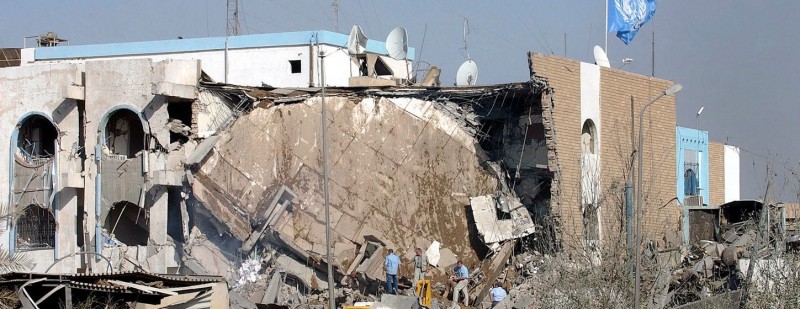Aftermath of 2003 Canal Hotel Bombing, Iraq On Sunday, UN Secretary-General António paid tribute to victims of terrorism, marking the international day established to ensure that “victims and survivors are always heard and never forgotten.” Each year, acts of terrorism harm and kill thousands of innocent people. Despite international attention, those affected often struggle gaining access to key physical, psychological, social, and financial services. Laura Dolci, a victim of the 2003 Canal Hotel Bombing in Iraq, in which 22 UN staff were killed, and over 100 wounded, reported that, “there are thousands of victims of terrorism and their families scattered in all regions of the world, struggling in their solitude with the scars of trauma and injury.” Remembering and paying tribute to victims of terrorism plays a central role in demonstrating that their status as victims is respected and recognised. This year’s Day coincides with the global transition out of the public health emergency triggered by the COVID-19 pandemic, a crisis that is compounding the struggles already faced by victims of terrorism. The theme for this year’s Day, selected following consultation with victims, is “Memories”; memories link people together and signify our common humanity. In terms of terrorism, memories of loss and pain bind communities together, allow for the exchange of ideas and produce targeted solutions. The UN focus on the treatment of victims of terrorism represents a key element of the organization’s Global Counter-Terrorism Strategy. Victims of terrorism play an essential role in promoting international solidarity, preventing violent extremism, and upholding human rights. In the 2021 review of this Strategy, the UN General Assembly noted the important role victims of terrorism play in creating targeted policies. The resolution adopted upon the conclusion of this review, called for Member States to develop a comprehensive national assistance plan for victims of terrorism, in particular historically oppressed groups. In his concluding reflections on the aim of the UN, the Secretary-General said the goal is to mobilize, “Member States to provide the legal, medical, psychosocial, or financial support they [victims of terrorism] need to heal and live with dignity.” Ms. Dolci similarly articulated that, “assisting victims of terrorism is not an act of charity: it ought to be a global engagement, anchored in States’ obligations and strongly supported by the United Nations.”
The World Organization for Development has been endowed with consultative status with the UN ECOSOC since 2014. The World Organization for Development, which has consultative status wich the UN ECOSOC, develops and implements Global Initiatives to achieve the UN Sustainable Development Goals.




Comments are closed.